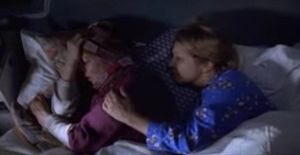Frances de la Tour | Love, Actually
Poor Lesbian Lover (uncredited). You’ll only find her if you scroll right down to the bottom of the Internet Movie Database’s cast list, sandwiched between Richard Curtis’ cameo as Trombone Player (uncredited), and Rebecca Frayn as Joanna – Daniel’s Dead Wife (uncredited). And unlike those two roles, Lesbian Lover …
Keep reading with a 7-day free trial
Subscribe to Cinema Year Zero to keep reading this post and get 7 days of free access to the full post archives.





